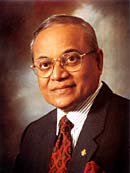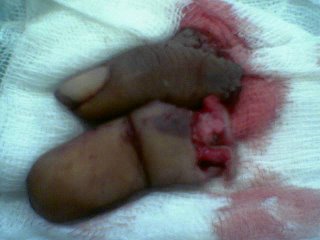United Suvadive Republic
The United Suvadive Republic (Dhivehi: އެކުވެރި ސުވައިދީބު ޖުމްހޫރިއްޔާ) was a nation formed for a brief period of time by a group of republican separatists led by people in the remote southern atolls of the Maldives, namely Addu, Huvadu and Fuahmulah. Their independence was declared on January 03, 1959 and the nation capitulated and claimed back in September 23, 1963.
Suvadive (Dhivehi: ސުވައިދީބު) was originally an ancient name for the three southern most atolls of the Maldives.
Among those who were convicted for the uprising against the militiaman was a young, educated and well respected individual known as Abdullah Afeef Didi, who served as a translator to the British during their post. The new prime minister appointed him as the liaison officer between the British and the locals. Shortly afterwards in December of 1958, the government announced plans for a new tax infliction on boats. This caused an infectious rise of riots throughout the atoll which led to several attacks on government buildings, once again forcing officials to retreat to the safety of the British barracks. They owed their lives to Afeef Didi, who warned them of the impending unrest. [3]
Four days later, on January 03, 1959 a delegation of the Addu people arrived on Gan and declared their independence to the British. When he refused to accept the leadership offered by this delegation, Afeef Didi was threatened with his life and wellbeing, which ultimately gave him no choice but to take the role of the executive head of the state. He was chosen to lead them because of the British insistence on a trustworthy leader whom they were familiar with, before backing the rebellion. [4]
The newly formed republic flourished and soon wanting to share its wealth and prosperity, the two other southern atolls of Huvadoo and Fuvahmulah joined Addu to form the United Suvadive Republic.
They travelled independently to these countries without stopping over at Malé; hence there was no government control over these trade affairs. However, Mr Nasir introduced measures which were unfavourable to the three southern most atolls including the prohibition of direct sail to the neighbouring countries without clearing through Malé. The workers in Addu who could have enjoyed the benefits of direct payment from the British were also disappointed with the arrangement in which they were paid through the government in Malé. They believed that the government controlled the exchange rates to their disadvantage.
<>
BIOGRAPHICAL NOTE OF HIS EXCELLENCY PRESIDENT MAUMOON ABDUL GAYOOM

Maumoonu Abdul Gayyoom
President of Republic of Maldives
"His leisure interests include reading, poetry, astronomy, photography, calligraphy, badminton and cricket."
A man of progressive thinking, President Gayoom’s governance has ushered in a hitherto unknown period of social and economic success for the nation. Since his assumption of office, the Maldives has made important strides towards greater democracy in a manner which has preserved and enhanced the country’s spiritual and cultural heritage. Through executive excellence and political foresight, President Gayoom has kept up the pace of change needed for a modern society by introducing and strengthening measures that ensured transparency and accountability in the government bureaucracy. The outstanding success attained in President Gayoom’s political life has been the historic milestone achieved in the recent political reform process he initiated – the introduction of a multi-party political system in the Maldives. As a man of the people, he continues to work to uplift the quality of life of the people, advocating good governance, and opening up new horizons for national development.
Born in Male’ in 1937 to a middle-class family, he quickly demonstrated a sound academic potential and, following early schooling in the capital, went first to Al-Azhar University in Cairo and later to the city’s American University; he obtained an M.A. in Islamic Studies at the former, where he also studied law and philosophy – academic disciplines in which he continued to have a keen interest. Indeed, President Gayoom, the politician and national leader, is every bit as much an intellectual as he is an able practitioner in government. His Degree in Islamic Studies earned him an academic appointment as a Lecturer in that discipline to Nigeria’s Abdullahi Bayero College, a faculty of Ahmadu Bello University, a post he held from 1969 to 1971.
However he returned home to the Maldives soon and began his career of service to the Republic. His first important government appointment was that of Manager of the Republic’s Shipping Department, which quickly led to his becoming Director of the Telephone Department. By 1974 he had well established his reputation as an able administrator and, consequently, was appointed Special Under-Secretary in the Office of the Prime Minister. His first overseas appointment was to the diplomatic pos of Deputy Ambassador to neighbouring Sri Lanka. This was followed in two years by his appointment as the Maldives’ Permanent Representative to the United Nations. At his recall to Male’ in 1977, he was appointed Minister of Transport, and then in November 1978 was nominated as Presidential Candidate by the Citizens’ Majlis, winning a record 92.9% of the popular vote in the referendum which confirmed him as the undoubted choice of the people.

President Gayoom is a member of the Constituent Council of Rabitat Al-Alam Al-Islami (Muslim World League). He was awarded Doctor of Letters (Honoris Causa) by the Alighar Muslim University of India in 1983, Doctor of Letters (Honoris Causa) by the Jamia Millia Islamia of India in 1990 and Doctor of Letters (Honoris Causa) by the Pondicherry University of India in 1994. He was also awarded the Global 500 Honour Roll by the United Nations Environment Programme in 1988, the International Environment Award by DRV (Travel Agents and Tour Operators Association of Germany) in 1998, and the Man of the Sea Award for 1990 by Lega Navale Italiana in 1991. In addition, he was awarded the Grand Order of Mugunghawa (the highest order of the Republic of Korea) in 1984, Knight Grand Cross of St. Michael and St. George (GCMG) (the highest order accorded to Foreign Dignitaries by the British Monarchy) in 1997, the World Health Organisation Health-for-All Gold Medal in 1998 and the Shield of Al-Azhar University of Cairo in 2002.
Sources from http://www.presidencymaldives.gov.mv/
Memory's will last forever

This picture is a memory of brutal killing in 20th September 2003 in Maafushi Jail by Maldives Militia.


